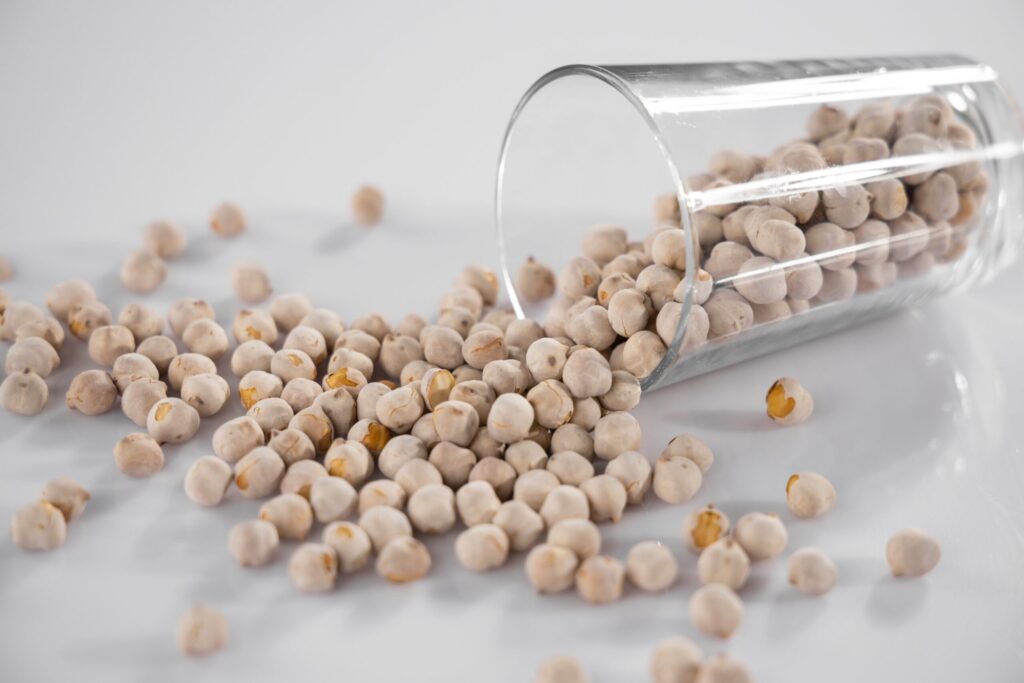Can a vegan diet help with hot flashes?
Hot flashes are a common and often uncomfortable symptom experienced by many women during menopause. But there’s a way to get relief even without taking pills. We have the power to take control of our well-being and tackle hot flashes head-on. How? By changing our diet!

A fresh study featured in the Menopause journal by the North American Menopause Society brings promising news for women going through menopause. It suggests that changing your diet can help manage hot flashes, just as effectively as hormone therapy and without any potential health risks.
A special diet to go through menopause easily
For the study, researchers followed 84 postmenopausal women experiencing two or more hot flashes per day for 12 weeks. During that time all the women followed plant-based diet rich in soy products.
They have to follow these principles of nutrition:
- avoid of animal products
- reduce fat intake
- 1/2 cup of ordinary soybeans added to a salad or soup each day
The results were quite amazing, participants, who followed this diet, saw an 88% reduction in their unpleasant symptoms. By comparison, hormone replacement therapy is associated with a 70–90% reduction in hot flashes. As a bonus, they also lost around 8 pounds (3.6 kg) during the study. Many study participants also reported improvements in sexual symptoms, mood, and overall energy level.
“Plant-based diet rich in soy reduces moderate-to-severe hot flashes by 84%, from nearly five per day to fewer than one per day”
Scientific breakthrough or ancient Japanese knowledge? – Probably, both
What is so special about this diet? In fact, scientists can’t answer this question. “We do not fully understand yet why this combination works, but it seems that these three elements are key — avoiding animal products, reducing fat, and adding a serving of soybeans,” explained lead researcher Neal Barnard, MD. He added that their results resemble diets in regions such as pre-Westernized Japan and the modern-day Yucatán Peninsula. In these areas, postmenopausal women experience fewer symptoms thanks to their prevalent low-fat, plant-based diets with soybeans.
Which of these 3 components (low fat, high plant food, soybeans) is more important? All of them bring benefits.
Three pieces of a healthy menopausal diet puzzle
Soy is rich in specific compounds called isoflavones. They belong to a class of phytoestrogens, which are plant-derived compounds that can mimic the effects of the hormone estrogen in the human body to some extent. So while estrogen, produced by women’s bodies, declines during menopause, adding some estrogen-like compounds can help. Using soymilk or soynuts is also an option to make your diet more variable!
A low-fat diet is good for blood vessels. Moreover, a low-fat vegan diet had a reduced intake of so-called advanced glycation end-products (AGEs). They are damaging molecules that processed meat (mainly fried and grilled) contains. AGEs can trigger inflammation and disrupt hormonal balance. So the most important to avoid fatty fried/grilled meat. Scientists and health experts mostly agree that lean meat 2-3 times per week will do no harm.
Fiber, contained in plant food, help to maintain healthy sugar level and “feed” your microbiome. Both factors are crucial. The gut microbiome plays a key role in our energy metabolism as well as estrogen metabolism. Menopause alters the gut microbiome. The fluctuations of our hormones during perimenopause can also lead to glucose spikes and crashes. Fiber helps reduce spikes and helps keep your blood sugar stable. Researchindicates that fluctuations in blood sugar levels could exacerbate the intensity of hot flashes. Incorporating fiber into your diet, which helps stabilize blood sugar levels and nourishes your gut microbiome, may contribute to a reduction in the severity of hot flashes.
Besides that, Dr. Barnard and his team want us to know that their research isn’t only about hot flashes. Diet change can also prevent other common menopausal complications, such as weight gain and chronic disease development. This highlights the empowering notion that making positive dietary choices can have a profound impact on women’s well-being within and beyond menopause, inspiring us all to embrace healthier living for a brighter future.
Book your complimentary discovery call
Fancy a diet make-over? Our 12-week programme uses real-time blood glucose monitoring, tailored nutrition, and hormone balancing to help you regain control of your diet and vitality during menopause.
